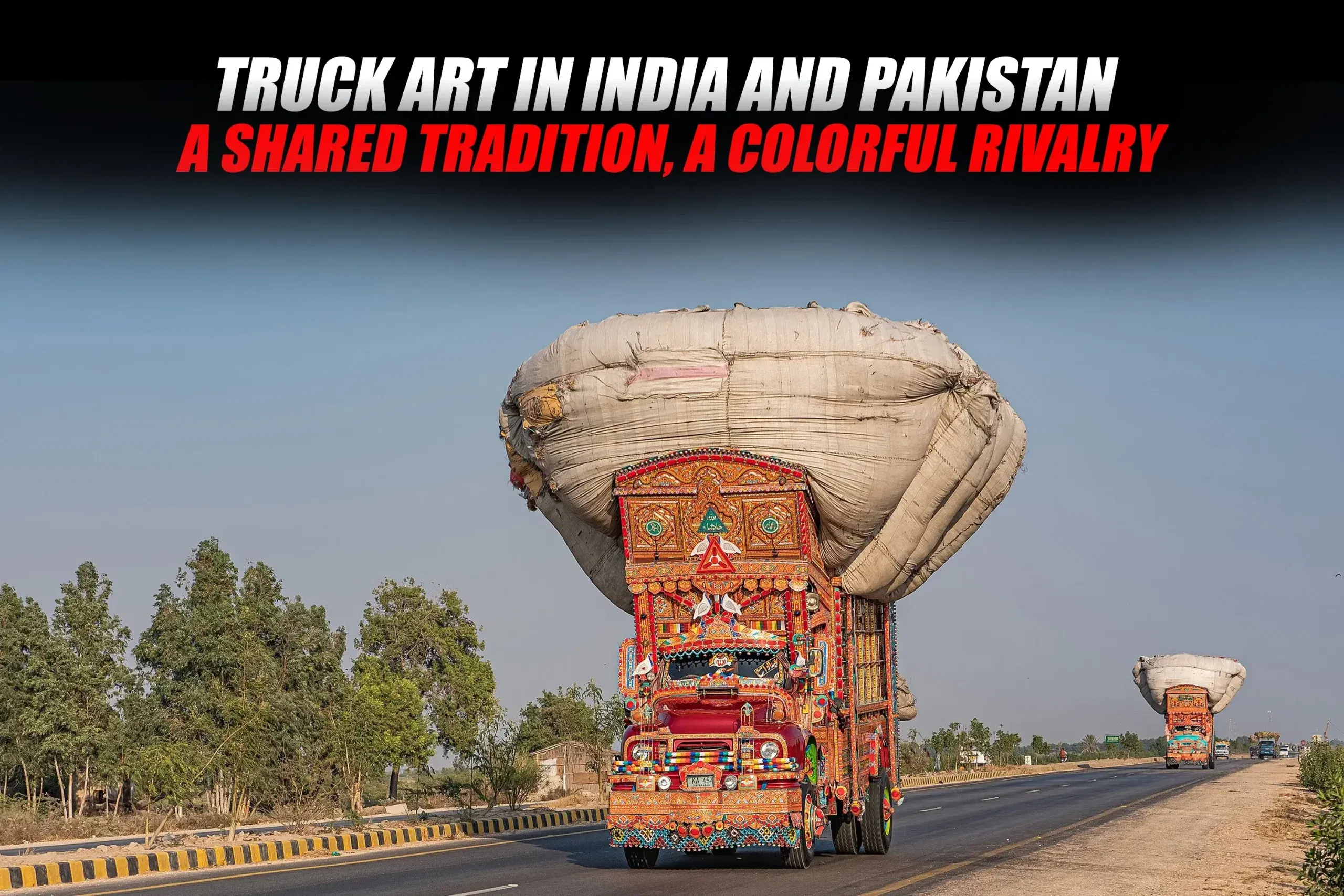Trucks in South Asia are more than just vehicles. They carry goods, but they also carry stories. Their bodies shine with bold colors, poetic lines and jingling ornaments. This moving art is called truck art, and it is loved in both India and Pakistan.
Truck Art: Where the Tradition Began
The habit of painting trucks began in the early 20th century as imported trucks arrived in colonial India. Drivers decorated them with local motifs and bright patterns. The art grew as generations of painters passed their skills down. Some scholars even link it to the decorated carts of the Indus Valley Civilization.
Truck Art: Two Countries, Two Styles
Pakistan made truck art a booming craft. Karachi became its hub with trucks glowing in mirrors, lights and glass. Peshawar and Quetta prefer heavy woodwork. Sindh favors camel bone designs and bold reds. Religious icons, poetry and political slogans cover many vehicles.
India shaped truck art in its own way. Punjab is a strong center. Trucks here show eagles, cows and protective symbols like nazar battu. Delhi painters adapt their work to social moods and politics. Northern states such as Uttar Pradesh often add poetry. The famous phrase “Horn OK Please” still runs across Indian highways, a relic from wartime kerosene trucks.
Truck Art: The Painters and Their Work
Truck art is handmade and every vehicle can take weeks to finish. Painters carve, paint and hang ornaments. Many drivers see their trucks as homes on wheels. Pictures of mountains, rivers, or family symbols remind them of their loved ones.

Pakistan has famous names like Haider Ali, who once showed his work at the Smithsonian, the world’s largest museum and research complex based in Washington, D.C.
India has Nafees Ahmad Khan, who has painted trucks daily for decades, and Tilak Raj Dhir, who keeps the truck art tradition alive with fresh interpretations.
Truck Art: Rivalry with Shared Roots
Truck art in India and Pakistan differs in style but it comes from the same roots. Both countries use trucks as rolling galleries. The rivalry is colorful but friendly. On the road, the origin matters less than the message. Each decorated truck tells its driver’s story, and together they show the creative spirit of South Asia.
- Stay updated with 91trucks for more articles and news.
- Subscribe to our YouTube channel.
- Follow us on Facebook, Instagram, and LinkedIn.









